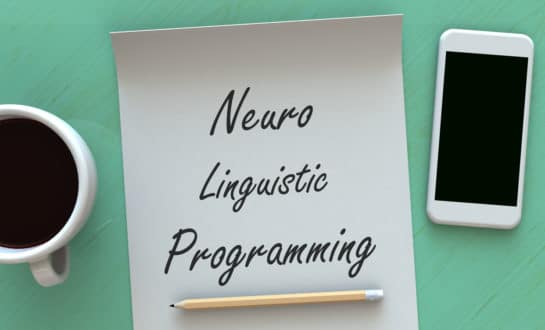

What is NLP?
Neuro Linguistic Programming (NLP) can be characterized in two ways. When NLP first started out it was simply known as an array of techniques aimed at understanding and systematizing the basic elements of ‘genius’. This was done through modelling the conscious and unconscious behaviour of therapists and communicators who were regarded as being some of the most brilliant people in their chosen fields. Eventually, the results garnered through modelling enabled what was an array of techniques to become NLP as it is known today. With its set of processes, protocols and frameworks which are used by qualified NLP Practitioners in evoking effective behavioural changes in their clients.
NLP was developed initially through observing three high performing therapists closely, as they worked with their clients. Developers then probed these therapists on how they engaged with their clients. They asked about specific things that the therapists did to enable the clients to exhibit healthy changes after their therapy sessions.
Observations conducted personally, audio and video tapes, and transcripts, helped developers identify a common pattern among the three therapists’ postures, gestures, voice tone, words and phrases used, motions, etc. They also noticed how each of them used methods of acting and thinking wherein what was seen, felt, and heard in a therapeutic session can be described as one-step-at-a-time. Moreover, even though the therapists incorporated different strategies, all of them used very specific speaking structures, behaviour and thought patterns to produce the results they wanted.
Developers invested a lot of time in documenting all the details of their observations, for instance what the therapists paid attention to during a session, what clients were experiencing, and how therapists defined what they experienced during a session. The way developers examined the three therapists’ behaviour is what’s known in NLP as modelling. Modelling is a form of observing, investigating, and obtaining the fundamentals of how things are done.
Before long developers started testing out the models produced from their observations. The tests produced the same results as the therapists had experienced with their clients, and therefore confirming its effectiveness. More tests were conducted and the results reinforced that the models that had been developed could be learned and used by anyone to obtain the results they wanted.
Over time, NLP became more advanced, and more methods, techniques, and tools were used to model other successful individuals. Now often referred to as the study of subjective experience, NLP offers the chance for people to achieve their goals through learning how to think efficiently and quickly, and communicate and behave properly.
Currently, people in the entertainment industry, business owners, and motivational speakers are now using NLP to their own advantage, but really anyone can benefit from the use of NLP. NLP can give teachers the tools to structure the learning experiences they offer in a way where students learn. Coaches, therapists, even clinicians can also use NLP to understand behavioural problems, the thought processes of a person, and communication difficulties, therefore making it easier to create solutions for these issues. Doctors and nurses, on the other hand, can incorporate NLP to help patients calm down, get past their hesitations and fears, and encourage patients to play a part in their own healing. NLP can help athletes frame their thoughts and actions the same way that champions do to improve at their given sport.
Lastly, NLP is a way of achieving and understanding knowledge. It is aimed at generating models of how people think and act so that these models can be applied in situations where it will work best. There are clear procedures for every pattern and model, there are also clear methods NLP Practitioners and clients alike can test to verify its effectiveness in situations that it has been applied to.
For an introduction to NLP and how you can utilise it to create excellence in your life, join us at our next Live It Now weekend.






